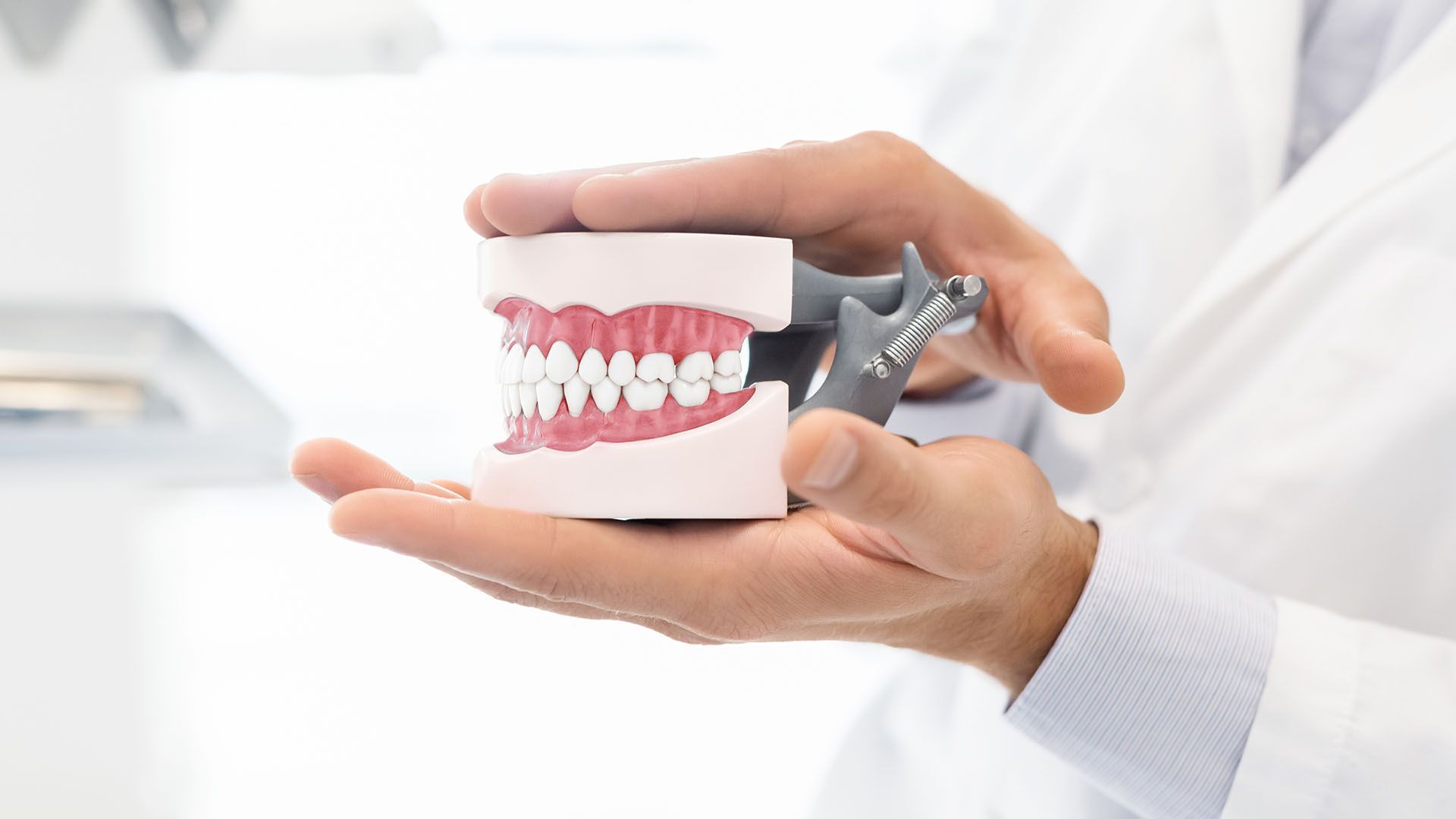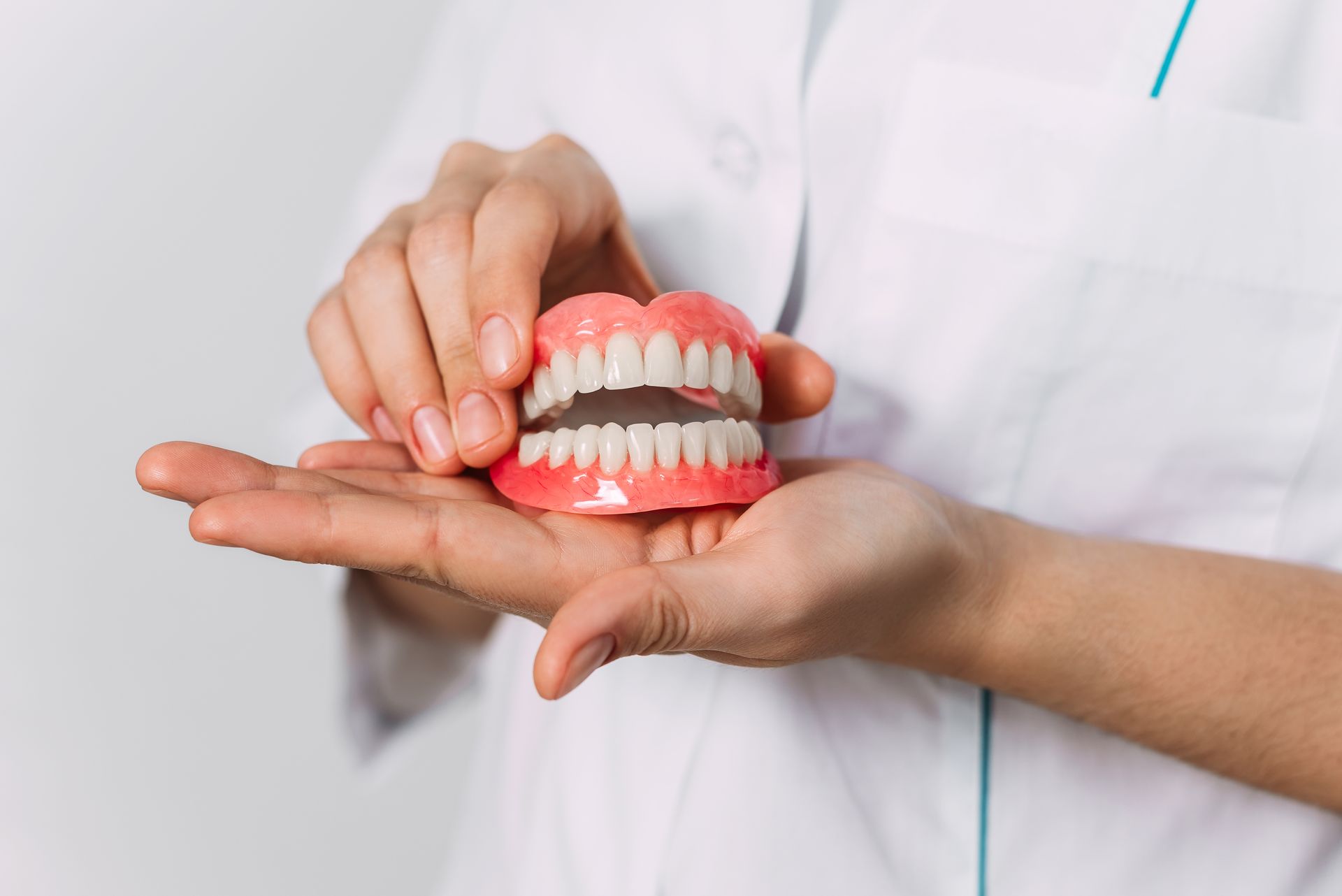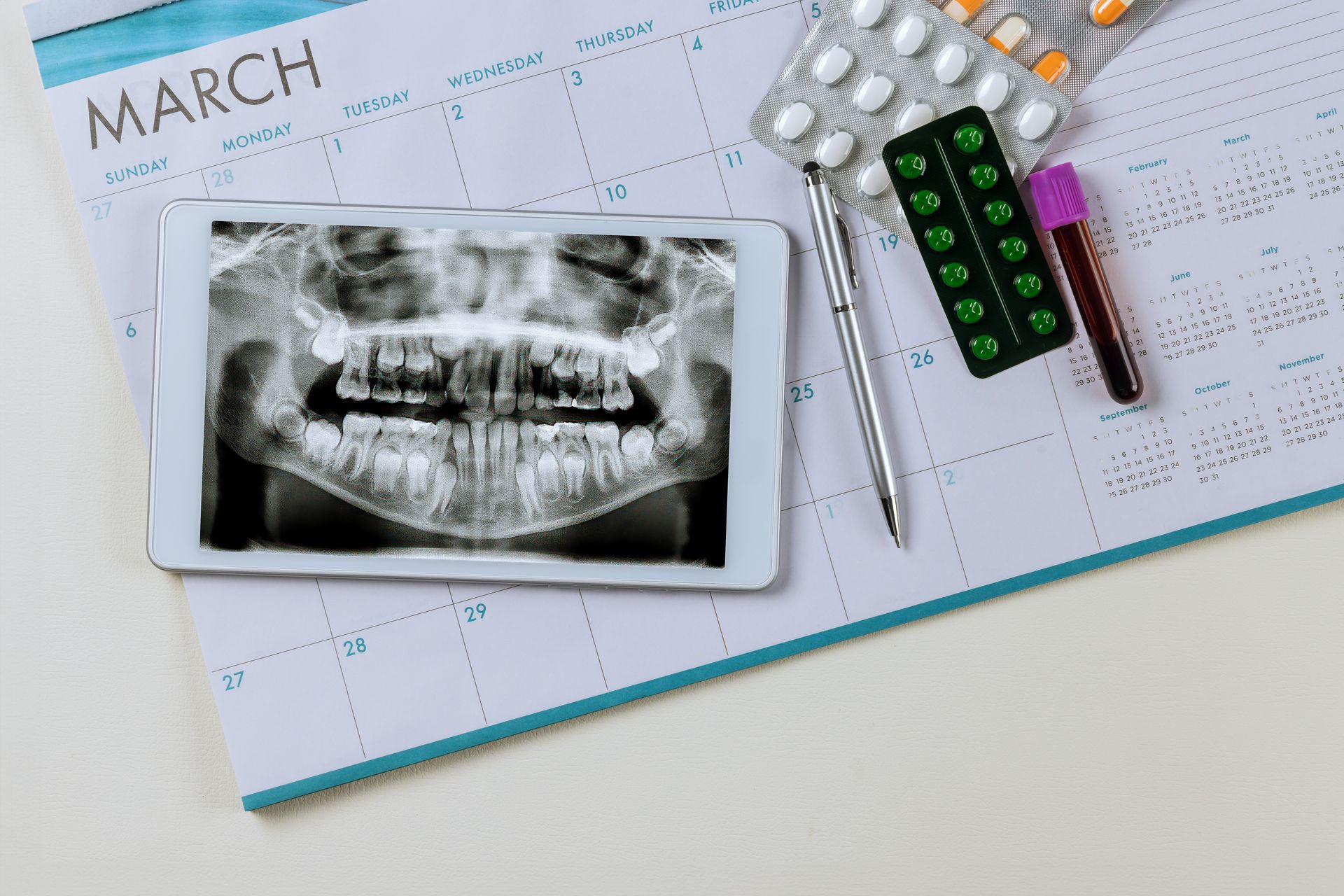Are Dental Implants the Best Solution for Bottom Dentures?
If your bottom dentures constantly shift, feel unstable, or make eating difficult, you’re not alone. Lower dentures are notoriously hard to keep in place due to the shape of the jaw and lack of suction. Fortunately, dental implants for bottom dentures provide a secure, comfortable solution that restores both function and confidence.
Why Bottom Dentures Are Difficult to Stabilize
The lower jaw presents unique challenges for traditional dentures. Unlike upper dentures, which can rely on suction for stability, lower dentures often rest loosely on the gums. This can cause them to shift while talking or chewing, creating discomfort and frustration.
Common problems with bottom dentures include:
- Slipping or movement while eating
- Sore spots or irritation on the gums
- Difficulty speaking clearly
- Reduced chewing power
What Are Dental Implants for Bottom Dentures?
Dental implants for bottom dentures are titanium posts that are surgically placed into the jawbone to anchor a denture securely in place. This type of solution is often referred to as an implant-supported overdenture or implant-retained denture.
The denture can snap onto as few as two implants, providing improved retention and eliminating the need for adhesives. The result is a much more natural and stable fit compared to traditional lower dentures.
Types of Implant Solutions for Lower Dentures
There are several implant options available depending on your needs, bone quality, and budget:
Implant-Supported Overdenture
This removable denture clicks onto two to four implants. It stays firmly in place during the day but can be removed at night for cleaning.
Fixed Implant Denture (All-on-4)
This option involves a full-arch prosthesis permanently attached to four or more implants. It’s not removable and feels more like natural teeth.
Mini Dental Implants
These are smaller in diameter and may be a solution for patients with limited bone volume who want added stability without extensive grafting.
Benefits of Dental Implants for Bottom Dentures
Choosing implants to support your lower denture offers several key advantages:
- Improved stability while eating and speaking
- Better chewing efficiency and more food choices
- No slipping or adhesives needed
- Preservation of the jawbone to prevent bone loss
- Improved confidence in daily interactions
Implants can transform a once-frustrating denture experience into a secure, functional, and long-lasting solution.
What to Expect from the Procedure
Getting dental implants is a multi-step process but is generally well-tolerated by most patients:
- Consultation & Evaluation
Your dentist will assess bone density, overall oral health, and determine if you're a good candidate. - Implant Placement
Implants are surgically placed in the jawbone. Healing time is usually 3–6 months, allowing the bone to fuse with the implant. - Attachment of Denture
Once healed, your custom lower denture is attached to the implants using snap-on attachments or a fixed connector bar.
Are You a Candidate for Implant-Supported Dentures?
Most healthy adults missing all their lower teeth are potential candidates. Ideal candidates typically:
- Have adequate bone density (or are willing to undergo bone grafting)
- Maintain good oral hygiene
- Don’t smoke or are willing to quit
- Are free from uncontrolled medical conditions like diabetes
Mini implants or alternative configurations may be recommended for patients with bone loss or budget concerns.
Cost and Insurance Information
The cost of dental implants for bottom dentures varies based on:
- Number and type of implants used
- Type of denture (removable vs. fixed)
- Additional procedures (e.g., bone grafts)
While insurance may not fully cover implants, many dental offices offer financing options or phased treatment plans. Always ask for a personalized estimate and discuss all available options.
How to Care for Your Implant Dentures
Maintaining implant-supported dentures is straightforward but essential to long-term success:
- Clean the denture daily with a soft brush
- Clean around implants and attachments carefully
- Visit your dentist for routine maintenance
- Avoid chewing on very hard foods to protect components
Removable overdentures should be taken out at night unless advised otherwise.
Final Thoughts
If you’re tired of dealing with loose, uncomfortable lower dentures, dental implants for bottom dentures could be the secure and lasting solution you need. Whether you choose two implants with a removable denture or a fully fixed option, the results can dramatically improve your daily comfort and confidence.
Consult with a qualified implant dentist to explore your options and see if implant-supported bottom dentures are the right fit for you.






